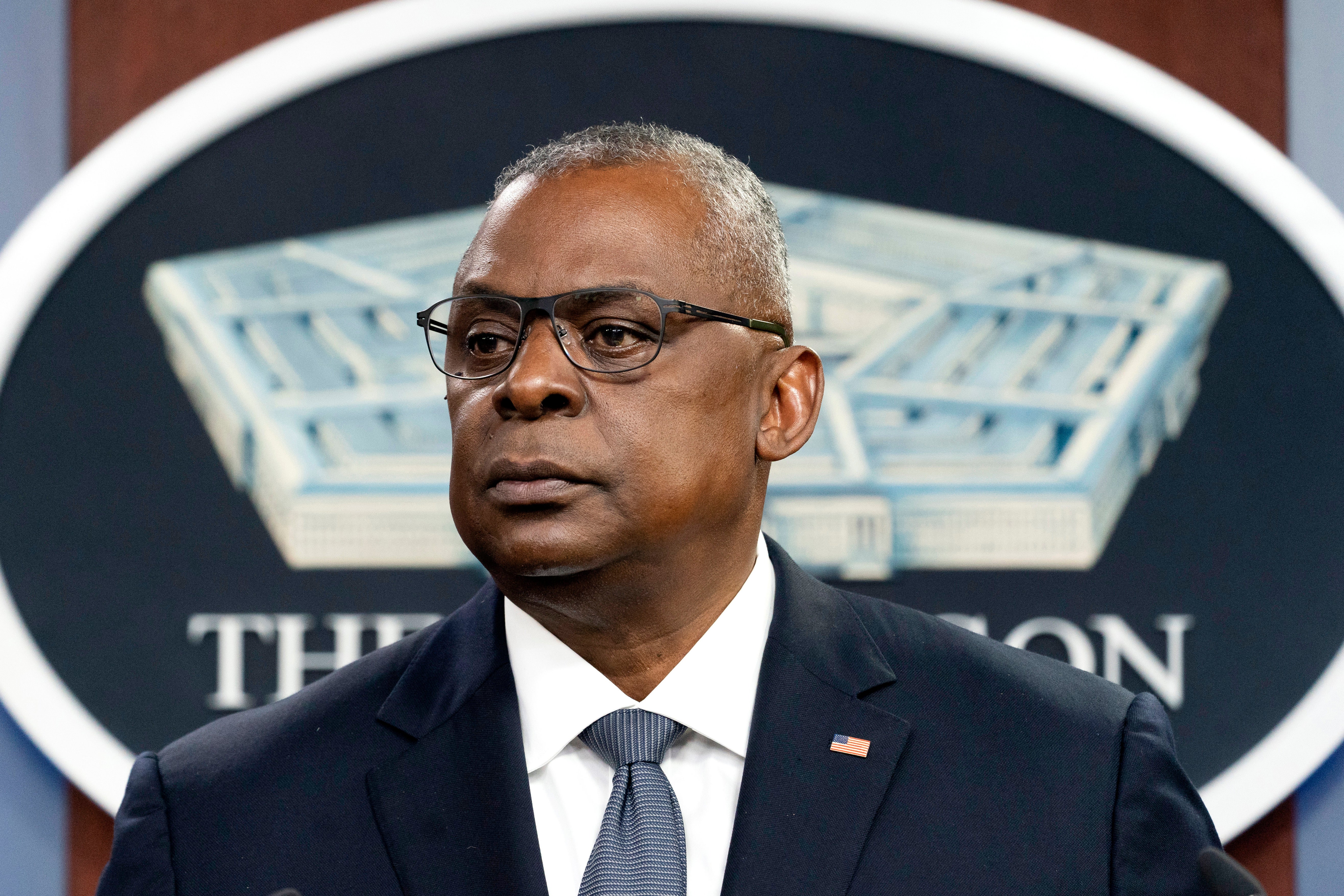Defense secretary taking more authority for use of DC Guard
The Pentagon says it's streamlined the approval process for urgent use of National Guard forces in the District of Columbia

Your support helps us to tell the story
From reproductive rights to climate change to Big Tech, The Independent is on the ground when the story is developing. Whether it's investigating the financials of Elon Musk's pro-Trump PAC or producing our latest documentary, 'The A Word', which shines a light on the American women fighting for reproductive rights, we know how important it is to parse out the facts from the messaging.
At such a critical moment in US history, we need reporters on the ground. Your donation allows us to keep sending journalists to speak to both sides of the story.
The Independent is trusted by Americans across the entire political spectrum. And unlike many other quality news outlets, we choose not to lock Americans out of our reporting and analysis with paywalls. We believe quality journalism should be available to everyone, paid for by those who can afford it.
Your support makes all the difference.The Pentagon said Thursday it has streamlined the approval process for urgent use of National Guard forces in the District of Columbia after months of study following the Jan. 6 riot at the U.S. Capitol.
The changes give the defense secretary sole authority to approve requests that would involve D.C. National Guard personnel participating in civil law enforcement or that would require their deployment within 48 hours, Pentagon press secretary John Kirby said in a written statement. That approval authority had previously been delegated to the Army secretary, the service's top civilian official.
The changes are intended to make the Pentagon better prepared to handle urgent requests for law enforcement support by civil authorities. After January's riot, the Pentagon came under criticism by some for a slow response to requests for Guard assistance, although a Defense Department inspector general review concluded that senior defense officials had acted appropriately before and during the riot.
The use of National Guard troops in the nation's capital is complicated by the fact that the usual chain of command headed by a governor does not apply because the district is not a state. Thus, the commanding general of the D.C. Guard reports to the president, although a 1969 executive order delegated control to the secretary of defense, who subsequently further delegated the authority to the Army secretary.
Kirby said Defense Secretary Lloyd Austin has amended the previous arrangement so the defense secretary is the sole authority for approval in certain circumstances. The Army secretary remains authorized to control Guard operations in the district and to consider district government requests for use of the Guard in the city for non-law enforcement purposes and in nonurgent situations.
Austin said law enforcement activities include crowd control, traffic control, search, seizure, arrest or temporary detention.
It was not immediately clear how this policy change might have affected the response time on Jan. 6, when a mob of supporters of then-President Donald Trump swiftly and violently overran the Capitol Police, which was assisted by the Metropolitan Police Department, and interrupted the certification of Joe Biden’s election victory. Lawmakers ran for their lives as the rioters climbed through broken windows and doors at the Capitol.
Prior to the riot, then-Army Secretary Ryan McCarthy handled requests for Guard deployments in the district, initially from the commander of the D.C. Guard. McCarthy acted in consultation with more senior Pentagon officials, including Christopher Miller, the acting secretary of defense at the time, and Gen. Mark Milley, chairman of the Joint Chiefs of Staff.
Last spring, Austin ordered a review of how the Defense Department handles requests for support in the National Capital region, including approval authorities, request processes, planning, available forces, command relationships, staff support, and training exercises.
Based on that review, Austin amended the 1969 arrangement for handling certain requests for deployment of the Guard in the district, and he clarified the process by which federal and local agencies request assistance for both preplanned and time sensitive events in the district, Kirby said.
“By clarifying and refining the request process, including outlining the required information needed to assess requests from federal and local partners, the department will be able to respond to requests efficiently, quickly, and effectively,” Kirby said.